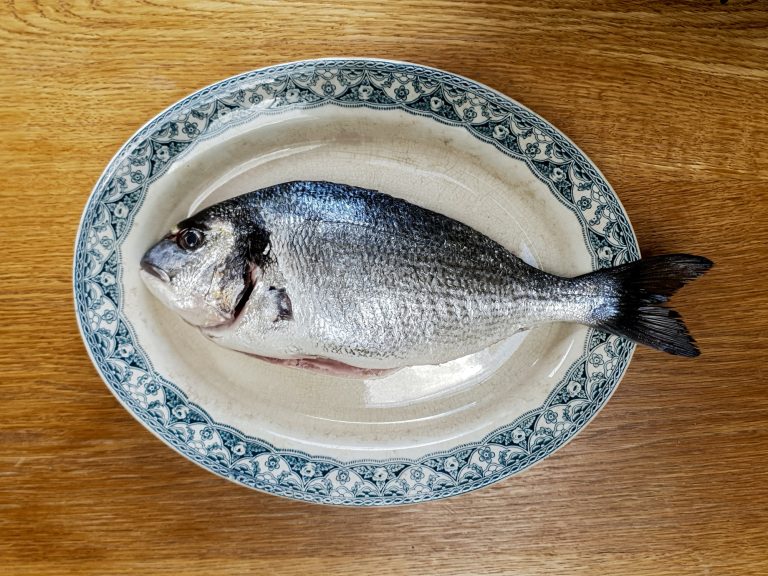Fish for dogs is an increasingly discussed and researched topic among pet lovers, as it is emerging as an exceptional nutritional choice. With properties rich in quality protein, essential omega-3 fatty acids and beneficial vitamins, adding fish to a dog’s diet is considered a promising strategy for improving the overall health and vitality of the four-legged friend.
In this presentation, we will explore in detail the importance and advantages that fish brings to a dog’s diet, shedding light on how this marine ingredient can contribute to a long and healthy life for our faithful companion.
CONTENT:
- Benefits of fish consumption for dogs
- Recommendations for introducing fish into the dog’s diet
- Best fish for dogs
Benefits of fish consumption for dogs
In search of a balanced and healthy diet for dogs, devoted owners are beginning to turn their attention to fish, recognizing its multiple nutritional advantages. This strategic choice in canine nutrition not only satisfies our furry companion’s taste buds, but also brings significant benefits to his overall health. We will now explore these benefits in detail, highlighting how eating fish contributes to your dog’s vitality and well-being.
1. Quality Proteins
Fish provides an outstanding source of high-quality protein, fundamental to the development and maintenance of muscle mass in dogs. This protein base provides energy and support for an active and healthy lifestyle.
2. Omega-3 Fatty Acids
Rich in omega-3 fatty acids such as EPA and DHA, fish is essential for the health of your dog’s skin and coat. These fatty acids are also known to support cognitive function, improve learning and memory. They also have anti-inflammatory properties, reducing inflammation in the body.
3. Heart Health
Omega-3 benefits don’t stop there, helping to maintain a healthy heart. These fatty acids help regulate blood pressure, reducing the risk of cardiovascular disease in dogs and supporting the proper functioning of the circulatory system.
4. Joint Support
The anti-inflammatory substances in fish play a significant role in managing the symptoms associated with joint conditions such as arthritis. This provides crucial support for the dog’s mobility and comfort, especially for older animals or those prone to joint problems.
5. Essential Vitamins and Minerals
In addition to protein and omega-3 fatty acids, fish provide vitamins A, D and E, providing support for eye health, bone development and immune system function. Minerals such as iodine, selenium and zinc complete this range of essential nutrients, ensuring the correct functioning of the dog’s body.
So, adding fish to your dog’s diet is not only a tasty choice, but also a smart strategy for taking care of his overall health.

Recommendations for introducing fish into the dog’s diet
In your efforts to provide the best care for your furry friend, adding fish to his diet can be a wise and beneficial decision. However, the introduction of a new food must be managed carefully to ensure optimal adaptation of the dog and to avoid potential health problems.
Next, we’ll explore the key recommendations for successfully incorporating fish into your dog’s diet, ensuring that this highly valuable supply of nutrients is properly managed.
-
Choose Appropriate Fish Sources
When selecting your fish source, opt for white-fleshed varieties such as salmon, tuna or cod. These are excellent choices due to their low fat content, providing essential protein without adding excess calories to your dog’s diet. It is recommended to avoid fried or salted fish as they may contain unwanted additives or high sodium levels.
-
Cook or Find Small Boneless Fish
Safety is a priority and small bones can be a danger to dogs. Ensure you debone the fish before giving it to your pet. Choose for boneless fillets or portions of fish to avoid potential digestive complications.
-
Moderate Quantity
Introduce fish to the dog’s diet gradually, carefully monitoring his reactions. The right amount depends on the dog’s size, age and activity level. A gradual transition allows his digestive system to adapt smoothly to the new food intake.
-
Variation in Diet
Fish should only be one component of a dog’s diet, not the only food. The introduction of variety in his diet ensures a balanced supply of nutrients, contributing to optimal health. Combining fish with other food sources completes the spectrum of essential nutrients required for the proper functioning of the dog’s body.
-
Consult a Veterinarian
Before you make significant changes to your dog’s diet, always recommend consulting a veterinarian. This professional can provide personalized advice, taking into account the specific needs of your pet, helping you create an adapted and balanced nutritional plan.
Overall, these recommendations not only support the successful introduction of fish into your dog’s diet, but also ensure a responsible and attentive approach to the individual needs of your furry best friend.

Best fish for dogs
When choosing the type of fish for dogs, it is important to choose varieties that provide a balanced combination of nutrients and are safe for canine consumption. Here are some recommended options:
- Salmon: It’s an excellent choice due to its high content of omega-3 fatty acids, which support healthy skin and coat as well as cognitive function.
- Tuna: Tuna is a good source of lean protein and omega-3. Dogs usually tolerate it well, and you can offer it as fillets or in cans with water.
- Cod: White cod meat is a low-fat option and an excellent source of protein. It is suitable for dogs that need a lower fat diet.
- Haddock: Similar to cod, haddock offers lean protein and low fat. It is a suitable choice for dogs with digestive sensitivities.
- Herrings or Sardines: Many dogs often eat these types of fish whole, including the small bones, thus also receiving calcium. They are also a rich source of omega-3.
Avoid fish that may contain high amounts of mercury, such as shark or king mackerel, as these substances can be harmful in large amounts. Also avoid fried, salted or processed fish, as they may contain additives or high levels of sodium, which are not beneficial for dogs.
Before making any significant changes to your dog’s diet, always recommend consulting a veterinarian. Your vet can provide personalized advice, considering your dog’s specific needs and ensuring that his diet is balanced and meets his nutritional requirements.

